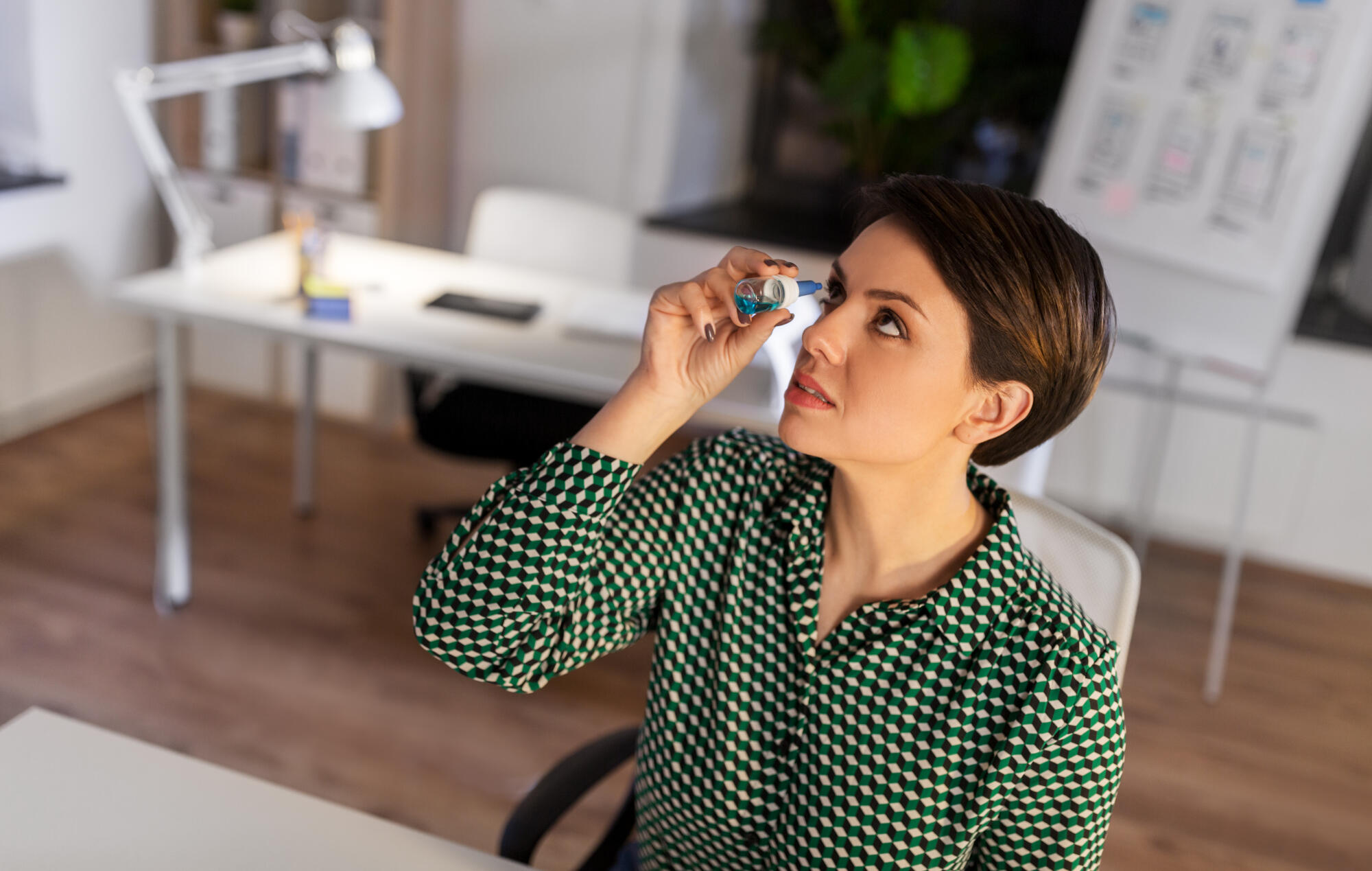
Natural Treatment for Dry Eyes: Best Remedies to Try

Did you know that 16 million Americans suffer from dry eye disease, a condition that can significantly impact daily life? Dry eyes are a common issue when the weather starts getting cold, when pollen is around, and when your tears aren’t able to provide adequate lubrication, leading to discomfort and even vision problems.
While the issue may just be the environment you’re in, there are natural treatments for dry eyes out there that can help soothe and refresh your eyes. Today, we’ll explore some effective options and tips for finding relief, and also point you toward where you can find some great solutions, like at Kiwi Drug.
Understanding Dry Eyes
Before we dive into treatments, let’s quickly discuss what dry eyes are. Your eyes rely on a stable tear film to keep them moist, healthy, and comfortable. When the production of tears is insufficient or when tears evaporate too quickly, you might experience that irritating dry feeling.
This condition can result from various factors, including:
- Environmental irritants: Pollution, smoke, wind, and dry air can all exacerbate dryness
- Screen time: If you spend a lot of time in front of screens, especially at night, it can lead to reduced blinking and increased dryness
- Age: As we get older, our bodies produce fewer tears
- Health conditions: Conditions like Sjögren’s syndrome, rheumatoid arthritis, or thyroid disorders can contribute to dry eyes
Now that we have a handle on what’s going on, let’s talk about some natural treatments that can help alleviate this condition.
Home Remedies for Dry Eyes
First things first: hydration is key. When your body is well-hydrated, your tear production is more likely to be sufficient. Aim to drink plenty of water throughout the day.
The general guideline is about eight 8-ounce glasses, but your needs may vary based on your activity level and climate.
Warm Compresses
Applying a warm compress to your closed eyelids can help stimulate oil production in the glands responsible for keeping your eyes lubricated. Simply soak a clean cloth in warm (not hot) water, wring it out, and place it over your eyes for about 5-10 minutes. This can also relieve any discomfort you may be feeling.
Omega-3 Fatty Acids
Incorporating omega-3 fatty acids into your diet may significantly improve your eye moisture levels. Foods rich in omega-3s include fish (like salmon and sardines), flaxseeds, and walnuts.
If you find it challenging to get enough from your diet, consider a high-quality fish oil supplement. Always consult with a healthcare professional before starting any new supplements, though!
Blink More Often
When we’re engrossed in our phones or computers, we tend to blink less. Make a conscious effort to blink regularly, which can help to spread your tears evenly across your eyes.
The 20-20-20 rule can also help: every 20 minutes, look at something 20 feet away for at least 20 seconds. This gives your eyes a chance to rest and rehydrate.
Humidifiers
If you live in a dry climate or use air conditioning or heating frequently, a humidifier can add moisture to the air, reducing evaporation of tears. Keeping indoor humidity levels around 40-60% can make a significant difference in your eye comfort.
Eye Exercises
Practicing some simple eye exercises can also help relieve dryness. One effective method is the “pencil push-up,” where you hold a pencil at arm’s length and slowly bring it closer to your nose while focusing on it. This exercise encourages better eye coordination and can stimulate tear production.
Herbal Remedies
Certain herbal remedies for eye dryness can provide another boost in comfort. For instance, chamomile tea bags can be cooled and placed over the eyes to soothe irritation. Just ensure you’re not allergic to any herbs before trying them out.
Avoiding Irritants
Be mindful of the environment around you. Try to minimize exposure to smoke, wind, and aerosols; these can dry out tears and make your eyes burn. If you need to be outside, wearing wrap-around sunglasses can help protect your eyes from harsher elements.
Coconut Oil
Coconut oil is known for its moisturizing properties and can be used around the eyes to prevent dryness. Just be careful to avoid getting any in your actual eyes. It’s also essential to use organic, food-grade coconut oil to ensure safety.
Eyewear and Screen Protection
If you spend a lot of time on screens, consider using blue light glasses or anti-reflective lenses. These can help reduce eye strain and dryness. Additionally, there are special glasses designed specifically to create a moisture chamber around your eyes.
When to Seek Professional Help
While natural remedies can be highly effective for managing dry eyes, it’s important to consult a healthcare professional if your symptoms persist or worsen. They can help determine any underlying conditions that might be causing your dryness and recommend appropriate treatments, which may include prescription eye drops or other therapies.
Sjogren’s Syndrome: This autoimmune disorder is like the body’s own immune system getting a little too enthusiastic and attacking the glands that produce tears.
Diabetes: High blood sugar levels can damage the nerves that help control tear production. This can lead to decreased tear production and, you guessed it, dry eyes. So, managing diabetes is key to keeping those eyes comfortable!
Allergies: Allergic reactions can cause inflammation and irritation, making your eyes feel dry and scratchy. Whether it’s pollen, pet dander, or dust mites, allergies can really throw a wrench in your ocular comfort.
Finding Quality Dry Eye Products at Kiwi Drug
As the prevalence of dry eye syndrome continues to rise, driven by factors such as prolonged screen time, environmental pollutants, and underlying health conditions, there’s an increasing demand for a natural treatment for dry eyes. If the options seem overwhelming or the results aren’t doing it for you, you’re not out of options for dry eye relief.
If you’re looking for products that can help with dry eyes, Kiwi Drug offers a variety of options. We provide a range of eye drops, lubricants, and other remedies designed to hydrate and soothe your eyes effectively. Our selection includes both over-the-counter and prescription products, ensuring you find exactly what you need.
Visit us today to explore more options.
Related Posts


